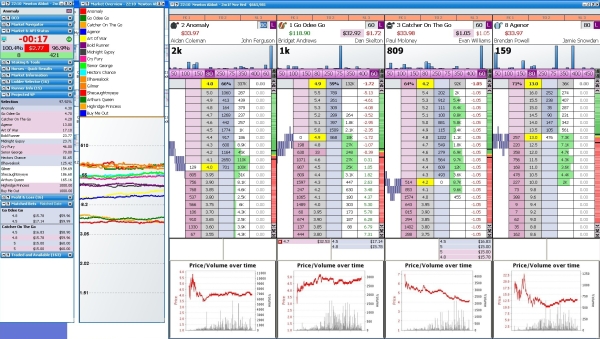THURSDAY, 13 AUGUST 2015
I am still learning how to earn my future bread and butter by speculating with prices on the world’s largest betting exchange – in my case mostly UK horse racing before the races start. I don’t want to give an account of how I am doing here and now. What I would like is to mention that I have discovered by now how I react to losses, and when something I expected to happen does not happen – with the result that I lose another few cents or dollars to someone else.
I find it interesting how difficult it can be for me to lose money – most of the time small, insignificant amounts. And then there is the hope, and the assumptions. The other day I heard someone say in a movie on TV: “I can take the pain, but the hope is killing me.” I am a pretty optimistic guy. I want to believe tomorrow will be better than today. When the first signal appears that things are looking good in a specific trading situation, my fist is already clenched and ready to shoot triumphantly into the air. Then it appears things just looked good at first glance. And my fist relaxes. My shoulders drop. If this happens a few times in one week, I once again contemplate giving up (I have to express it in a different way because talk of giving up can so easily become commonplace).
I can’t remember what my assumptions were when I started with this project, but I think I assumed it would take a month or so for my account to begin growing. Eventually I became more realistic and started talking about eighteen months to two years. On a smaller scale I frequently make the assumption that it is going better and better, and that I am getting closer to that elusive point of success. Then it escapes me again. And then the disappointment kicks in, again.
This, at the end of the day, is interesting – to the part of me who is interested in things of this nature, and less bothered by how much money I make … or don’t make. I would almost go so far as to suggest that this strong emotional reaction to losing, or to being wrong, or to being disappointed when I hoped for something better, is worth the money that I have spent on it so far.
FRIDAY, 21 AUGUST 2015
The difference between the ages of 30 and 44 for me is an extra decade and a couple of years to observe myself in situations, and with certain challenges, and to see where I am okay, and where my weak points are.
______________________
